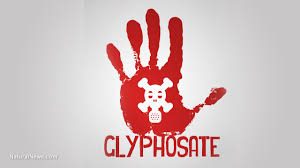15
Aug
Australia, Germany Urged to Restrict Glyphosate after U.S. Court Ruling
 (Beyond Pesticides, August 15, 2018) The recent court ruling awarding $289 million in compensatory and punitive damages to a groundskeeper after he contracted cancer while working with Monsanto’s Roundup (glyphosate) is having a ripple effect around the globe. In light of the decision, the environmental group Greenpeace is calling on the Australian government to suspend the sale of Roundup. Meanwhile, German lawmakers are eager to see glyphosate banned.
(Beyond Pesticides, August 15, 2018) The recent court ruling awarding $289 million in compensatory and punitive damages to a groundskeeper after he contracted cancer while working with Monsanto’s Roundup (glyphosate) is having a ripple effect around the globe. In light of the decision, the environmental group Greenpeace is calling on the Australian government to suspend the sale of Roundup. Meanwhile, German lawmakers are eager to see glyphosate banned.
A California jury found Monsanto liable in a lawsuit filed by a man who worked as as groundskeeper and used the company’s glyphosate-based herbicide, which he proved caused his cancer. The jury found that Monsanto “knew for decades” the product was potentially dangerous and acted “with malice or oppression” by failing to warn Johnson of the risks.
Now Greenpeace is calling on the Australian government to take “urgent action” to suspend the sale of the weedkiller. “We need to be urgently exercising the precautionary principle,” said Jamie Hanson, Greenpeace’s head of campaigns. “Use of this dangerous product should be severely restricted.
In Australia, the U.S. court decision sent shares of Australian pesticide-maker, Nufarm Ltd, tumbling almost 17 percent to a more than two-year low. Analysts estimate Nufarm earns about a fifth of its revenue from products containing glyphosate, the world’s most widely-used herbicide. Shares of Germany’s Bayer, who now owns Monsanto despite strong voices of opposition from grassroots advocates, also fell more than 10 percent. And now a spokesman for the German environment ministry said Germany aims to end the use of glyphosate-based pesticide products during the current legislative period which ends in three years. Meanwhile, the UK hardware chain, Homebase, announced it would review its sale of Roundup in the wake of the court decision.
In 2015, the World Health Organization’s (WHO) International Agency for Research on Cancer (IARC) classified glyphosate as a “probable human carcinogen.” Since then, Monsanto has been hard at work trying to undermine findings that show its flagship product, glyphosate, is anything other than “safe.” However, its attempts to unduly influence and undermine scientific research and government review of its product has been disclosed widely in the press. Concerns about cancer are compounded when tests continue to detect glyphosate is common foods. Glyphosate levels were found in Cheerios, Pita Chips, and in breast milk, German beers, feminine hygiene products, and bread, as well as in nearly 100% of Germans tested. In The U.S. public interest, food safety, and environmental organizations have been calling on the U.S. Environmental Protection Agency (EPA) to ban glyphosate.
While federal oversight and regulation lag behind, environmental groups, like Beyond Pesticides, are urging localities to restrict or ban the use of glyphosate and other unnecessary toxic pesticides. Beyond Pesticides promotes these actions and many more through the Tools for Change webpage. This page is designed to help activists and other concerned citizens organize around a variety of pesticide issues on the local, state, and national level. Learn how to organize a campaign and talk to your neighbors about pesticides with our factsheets.
If you want to take action in your community to ban glyphosate, use Beyond Pesticides’ factsheet and report to advance your effort: See our factsheet on glyphosate/Roundup, our report Glyphosate/Roundup Exposed, and coverage and background on the glyphosate/Roundup lawsuit.
All unattributed positions and opinions in this piece are those of Beyond Pesticides.
Source: The Guardian, Reuters










